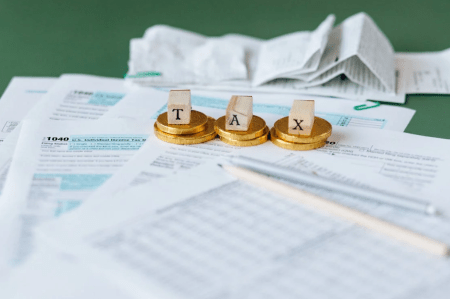If you’re a regular commuter, chances are, you’ve probably witnessed your fair share of collisions, car accidents and road rage. Accidents have become an unfortunate reality of our lives, especially in cities with fast-paced lifestyles that lead to congested roads and rush hour traffic.
From fender benders to serious collisions, the madness of urban environments often contributes to an increase in the number of accidents. And naturally, the most frequent type of accident we encounter are car accidents as these vehicles are the most frequent on the roads.
Additionally, the US regions that are currently opening doors to a larger influx of tourists are also witnessing an increased risk of traffic accidents. Cities such as Indianapolis for instance are slowly becoming a more appealing destination for job-seekers and tourists.
Apart from being an extremely traumatic event, traffic accidents also leave a dent in a person’s budget as there are numerous financial costs to take care of such as medical care bills and lost wages.
That’s why it’s much better to be informed of all the necessary steps beforehand to be able to act quickly in case anything happens to you or your loved ones.
Understanding how to handle the aftermath of an accident is crucial for protecting your rights and ensuring a smooth recovery process. In the below paragraphs, we’ll dig a bit deeper into the challenges one faces after a car accident and we’ll give you some tips on how to make sure your rights are protected all the way.
Overview of car accidents in the US
Accidents happen quite frequently, with car accidents being one of the most common types. Globally, over 1.3 million people lose their lives in road traffic accidents each year, according to the World Health Organization (WHO).
In urban areas, these numbers are often higher due to the density of vehicles and pedestrians.
During morning and afternoon rush hour, the chances of an accident taking place are even higher as the volume of traffic is at its daily peak.
Additionally, many people often fail to abide by the driving regulations such as the speed limit and traffic signs. Reckless and distracted driving are yet another reason why accidents happen.
Steps to take after an accident
Handling an accident properly can make all the difference in managing its consequences. The sooner you take action, the higher the chances of getting fair compensation. But in order to reach a final settlement, there are many hurdles to cross.
Here are the steps you should follow:
1. Ensure safety first
The immediate priority is ensuring everyone’s safety, of course. If possible, move vehicles out of traffic to prevent further collisions. Then, make sure to turn on hazard lights and set up warning triangles if available. If you can do this by yourself, try to find someone at the scene who can help you.
Afterwards, check yourself and others for injuries. If someone is hurt and has an open wound, avoid moving them unless there is immediate danger, such as a fire or threat of another collision.
2. Call emergency services
Contact emergency services immediately, even if the accident seems minor. Dial 911 to report the incident and request medical assistance if necessary.
These police reports will be vital down the road for documenting the accident and may be required when filing insurance claims or pursuing legal action.
3. Gather relevant information
Exchange details with all parties involved in the accident, including:
- Full names and contact information
- Insurance company names and policy numbers
- Vehicle descriptions (make, model, color, license plate number)
Additionally, collect information from witnesses, as their accounts may be critical later. Witness statements can make or break a settlement, so try to get accurate and detailed witness statements.
4. Get legal assistance
If the accident involves serious injuries, disputes over liability, or potential lawsuits, consulting an attorney highly recommended. Now, you’re probably asking yourself: “But, why do I need an attorney? That’s just an added cost I can’t afford.”
Well, an expert car accident attorney can help you with gathering evidence and dealing with the pesky insurance companies. And, if you’re worried about any extra fees, most of these attorneys require a fee only after the settlement is won.
Until then, there’s no need to worry about paying all these legal fees.
5. Avoid admitting fault
Even if you think you may be partially responsible, avoid admitting fault or making definitive statements, especially in front of insurance companies. They will definitely use this against you just to make sure you don’t get any money in the end.
That’s why it’s better to just stick to the facts when speaking to the police or other parties. Let the authorities and insurance companies determine liability based on evidence.
6. Seek medical attention
Even if you feel fine, it’s crucial to get a medical evaluation after an accident. Again, if you fail to seek medical help, insurance companies might also use this to their advantage.
Some injuries, like whiplash or internal trauma, may not show symptoms immediately. Medical records also serve as evidence if you pursue a claim for damages.
You also might get some treatment to help speed up your recovery, so it’s best not to skip those regular check ups.
The final word
Needless to say, accidents can be life-changing, but knowing how to respond can help minimize their impact and it can at least help you get back on your feet moneywise.
By following the right steps—prioritizing safety, documenting the incident, seeking medical care, and getting legal assistance—you can deal with the consequences of an accident effectively and protect your rights.
While some accidents may only result in minor inconveniences, others can have long-term consequences. Seeking professional guidance from medical experts, insurers, and legal professionals ensures you receive the care and compensation you need to move forward.
Remember, preparation and prompt action are your best defenses in an accident. Stay informed, stay calm, and don’t hesitate to reach out for help when needed. There are numerous resources you can turn to so don’t shy away from asking for help.







